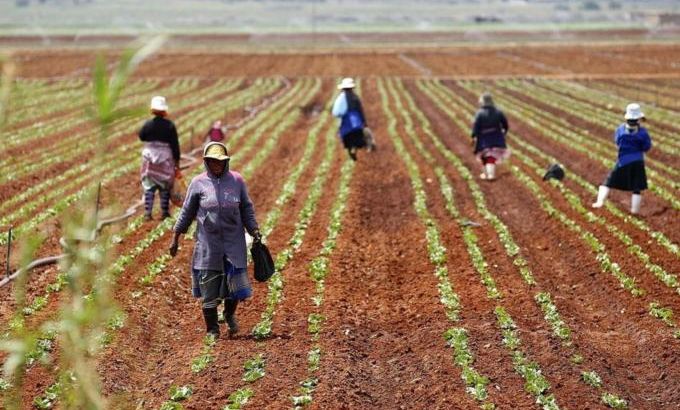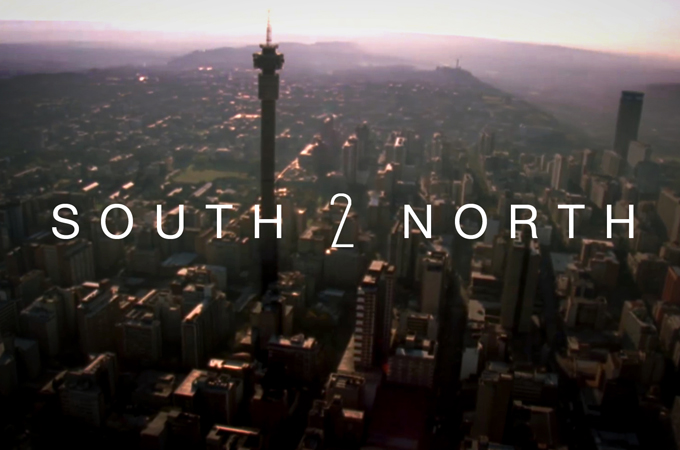
Are land grabs an opportunity for Africa?
We ask if land investments on the continent represent a solution to food insecurity or a new form of colonialism.
| No subject is off limits – Redi Tlhabi talks frankly to inspiring and intriguing personalities from across the world. |
From hopeless continent to investment darling of the world – are land investments in Africa an answer to worldwide food insecurity or a dangerous new form of colonialism?
This week on South2North, Redi talks to former Mozambican President Joaquim Chissano, Nigerian politician and Oxfam trustee Nkoyo Toyo and Philippe Heilberg, a land investor from the US.
Escalating energy and food prices have triggered a global scramble for Africa’s land and water resources. Eager to feed their growing populations, countries are buying up prime farmland in Africa at rock bottom prices. Land eight times the size of the UK has already been bought up by hungry investors.
Redi asks Chissano if this investment is a new scramble for Africa.
“The scramble for Africa is never good. We have known that since Berlin and we fought against it. But investment is welcomed if it is done in a win-win situation when people benefit from this investment.”
Toyo explains that the trend towards buying land in Africa has come from the 2008 spike in food prices, a concern about global food security as well as an impending energy crisis. However, she warns that investments might not be as good as they seem, and that UN records show alarmingly rapid sales of African land.
“The problem with this type of investment is not that we do not want to see investment. It’s that we see investments that are increasingly not addressing the needs of the continent. We hear that at least 33 million square hectares of land are lands which have been acquired in just less than 10 years.”
Heilberg argues that the statistics from the UN are highly distorted because they are not closed or official deals. He says that his own figures have been doubled in some accounts.
“Land is cheap in Africa, but there are many reasons why it’s cheap. In many parts of the continent there is little to no infrastructure whatsoever …. The frontier markets offer incredible risk-reward opportunities. Because when the growth happens it’s exponential.”
Toyo disagrees that these deals have always been above-board and that they benefit local communities.
“That’s not what we are seeing on the ground. We are seeing incidences of violence. We are seeing incidences of forced evictions. We are seeing incidences of homelessness, farm lands being taken away … The fact is that most of the grabs that are going on, the owners don’t even know about them, so there isn’t even a basis for that conversation to happen. The negotiations are happening sometimes with powerful people in secret negotiations. These non-transparent processes are depriving people down the line.”
The group discusses Africa’s history of food dependency, the role of NGOs on the continent and the ability of small farm owners to expand their businesses and provide food for the continent.
Chissano says: “Here is where we have to see the potential. We see so many NGOs in Mozambique, but they do tiny things, and you don’t find the development of the people – you don’t see a small farmer become a middle farmer and grow [to become] a big farmer, because we need investors from inside the country.”
| From the producer’s desk: |
Senior producer Josefine Volqvartz writes:
Imagine arriving home from work to find a team of rich foreigners tearing down your house and digging up your back yard.
Well, that’s a reality faced by many Africans. On this show we explore the fine line between ‘land grabs’ and land investments.
When is an investor a predator and when is he a source of development and income?
oin us as American land investor Phil Heilberg comes face to face with two passionate Africans, former Mozambican President Joaquim Chissano and Nigerian politician Nkoyo Toyo.
South2North can be seen each week at the following times GMT: Friday: 1930; Saturday: 1430; Sunday: 0430; Monday: 0830. |
